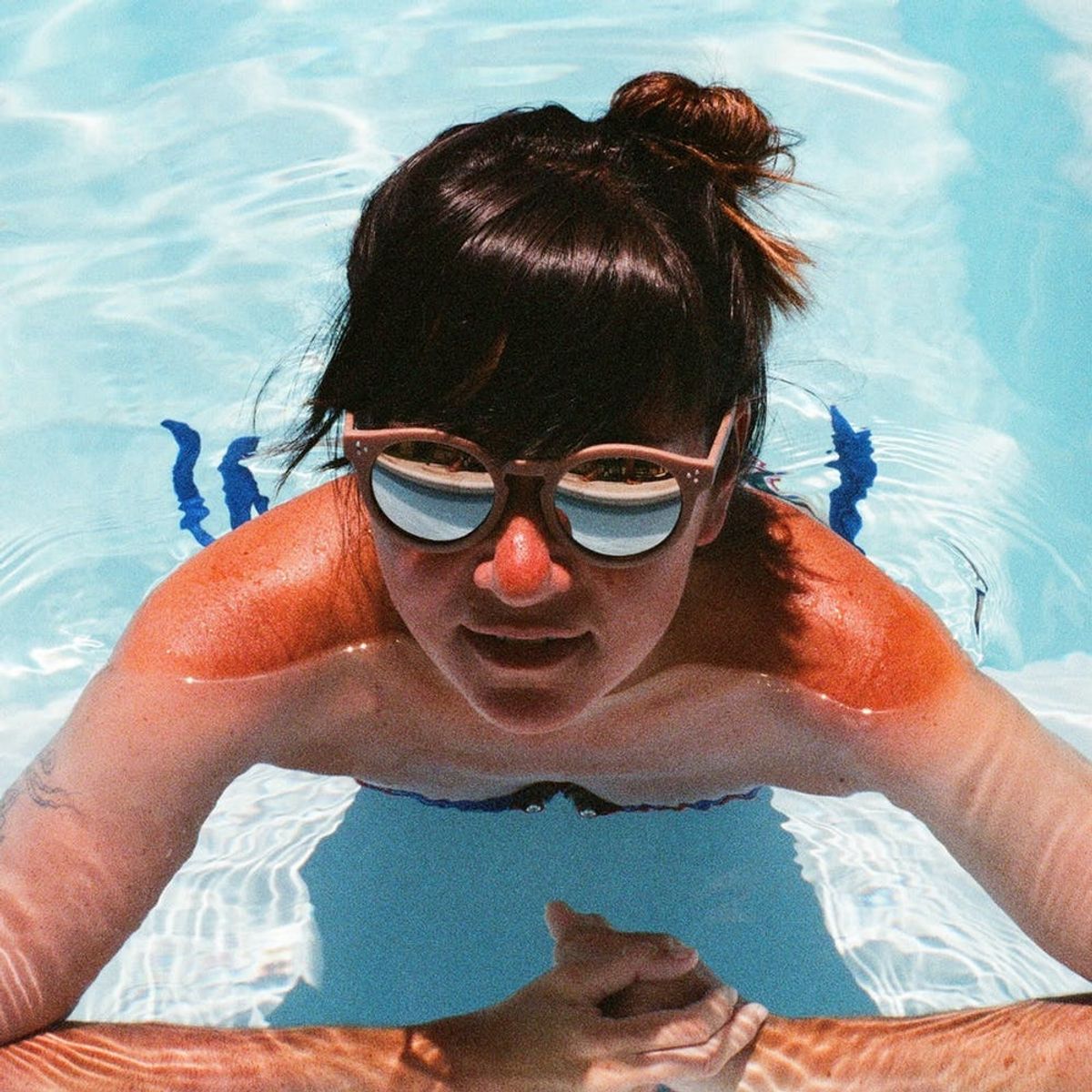Save yourself from this sunburn.
You’re Probably Forgetting to Protect This Body Part from the Sun

We try our best to protect our skin from UV rays, but getting a sunburn at some point during the summer is almost inevitable for many. Though most of us can handle the results of too much sun on our shoulders, chest, and arms, there are plenty of other surprising places prone to burning, like the tops of our heads.
“Our scalp tends to be even more susceptible [to burning] because it’s paler, [and] it hasn’t had the amount of sun exposure that other parts of our body have had,” explains Anabel Kingsley, director of communications and trichologist at Philip Kingsley. “So if you’re suddenly exposing skin that hasn’t produced extra melanin to help protect itself, it can burn faster.”

While your hair provides some protection when you’re out and about, there are plenty of instances where your strands can’t supply sufficient security against UV rays. If you have fine hair or wear a style that’s cropped close to the scalp, in tight braids, or simply parted down the middle, you should take extra precautions, says board-certified hair restoration physician Alan J. Bauman.
“Part-lines, receding hairlines/temples, cowlicks, and areas in the process of undergoing hair transplantation are where visible scalp shines through, so that’s where sun exposure is the greatest,” he says. Kingsley agrees, noting that those with light blonde, gray, or white hair can also endure UV damage to their strands that can extend to the scalp because they don’t have pigment that could offer some protection.
It’s possible to sustain more serious (and painful) damage that could become infected, scarred, and lead to hair loss, according to Kingsley, though it’s only in extreme cases. Bauman also points out that while sunburns might not directly affect hair growth, it can still lead to skin cancer and premature aging in that area. Studies show that “inflammation (e.g., seborrheic dermatitis) and other oxidative stress (like UV radiation, which impacts scalp health) have been shown to detrimentally impact hair quality and hair growth,” he says.

So the top of your head should be just as much of a priority as the rest of your body, but Kingsley says the skin on the scalp is the same as on the face and should be treated similarly to avert any painful results. The trichologist regularly slathers a bit of some of the Clinique Broad Spectrum Face Sunscreen SPF 50 ($25) that she applies to her face and along her part to prevent burns. But when she wants more serious protection, she uses her family’s eponymous Swimcap Cream ($28), which was developed for the US Olympic synchronized swimming team to deliver much-needed moisture for your mane and sun protection for your scalp and strands. If you want something lighter, Bauman suggests spritzing Banana Boat’s Sport Performance Quick Dri Sunscreen Spray SPF 30 ($9) or simply slapping on a hat or a head wrap and calling it a day.
But if it’s too late and your scalp is already feeling extra-sensitive, the experts caution you to stay away from anything formulated with alcohol, fragrance, exfoliants, or oils as they can dry out the skin and increase irritation. And if you’re experiencing any pain or see any blisters, red streaks, or pus, you should address it with your doctor to avoid any infections.

Additionally, the experts suggest sticking with an after-sun staple: aloe vera. It not only soothes the skin and calms inflammation but also acts as a conditioner and helps retain moisture. While you could easily apply the same aloe vera gel that you use on the rest of your body, Kingsley also recommends the brand’s After-Sun Scalp Mask ($29) as an additional solution since it has B5 to moisturize and a slow-release menthol that cools down the heat. They also advise you to accessorize with a cap or scarf if you plan on stepping out in the sun while your scalp is still healing; it will take about three to five days for the pain and redness to go away.
Bauman’s best tip for avoiding another over-sunned scalp situation? “‘Learn from the burn,’ as they say.”
Follow us on Pinterest to score more summer skincare tips to keep you safe.
Brit + Co may at times use affiliate links to promote products sold by others, but always offers genuine editorial recommendations.
(Photo via Getty)



















